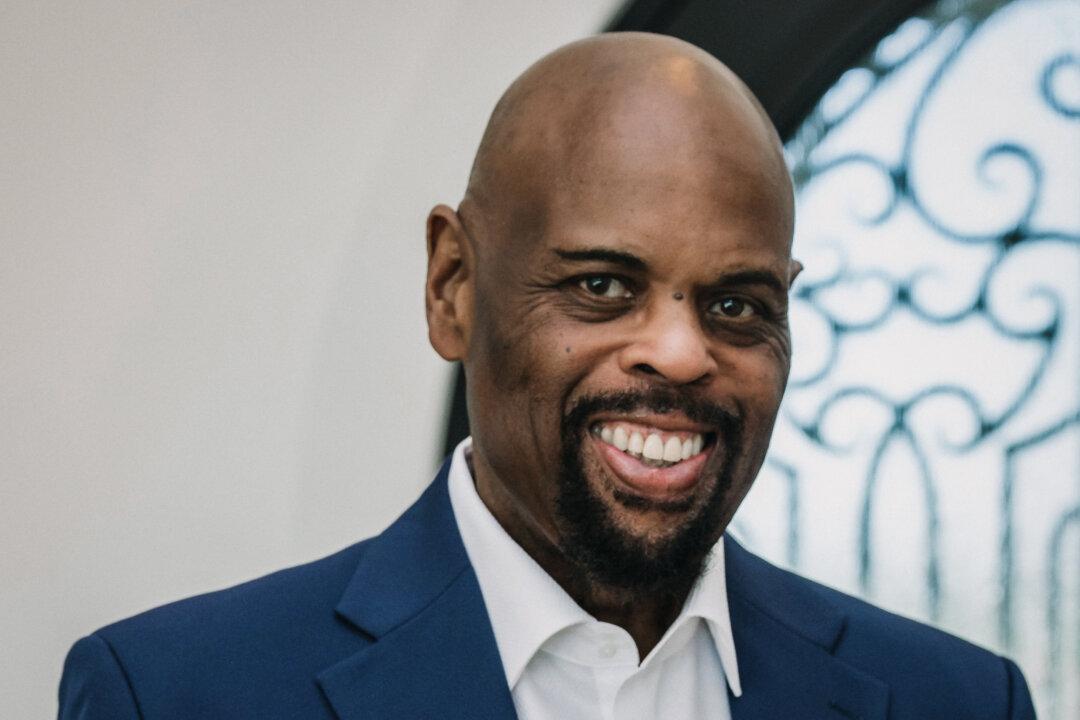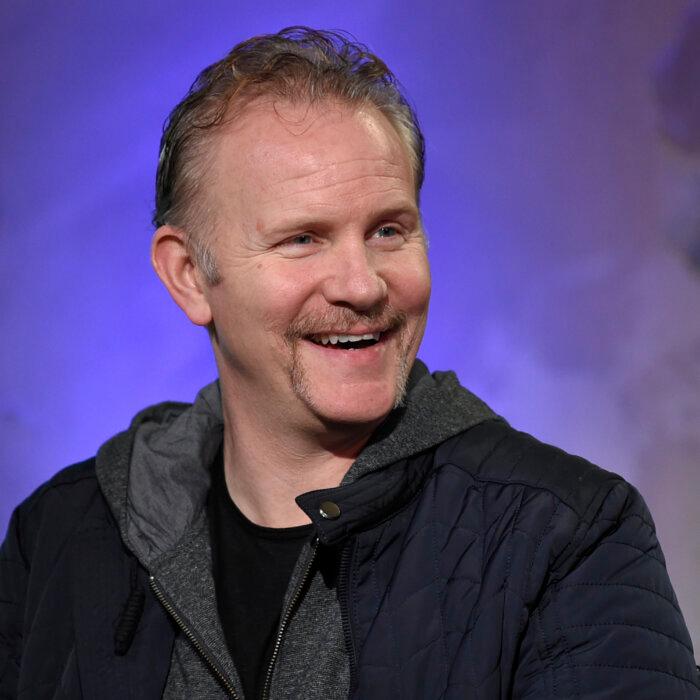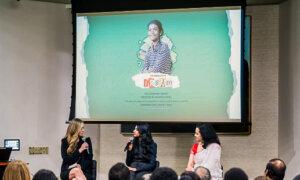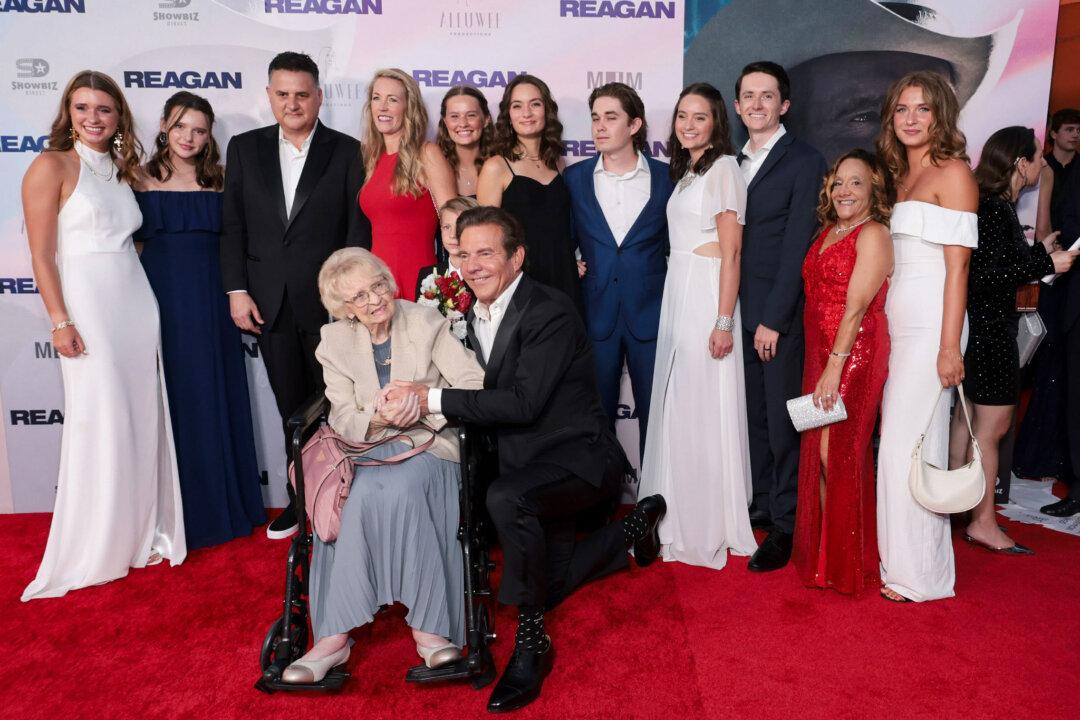Rick Rigsby’s new documentary, “Juneteenth: Conversations on History and Healing” embarks on a journey to uncover Juneteenth’s roots and the church’s pivotal role in justice and healing. His exploration spans from Dallas to Crownsville, Maryland, revealing hidden histories and transformative stories of reconciliation, urging a nation to learn from its past and strive for unity
The documentary is set to air on June 17 on The Christian Broadcast Company, an international Christian-based television network known for its diverse lineup of faith-based programming, including shows by pastors and personalities.
Mr. Rigsby, a minister, motivational speaker, author, former college professor, and former news reporter who holds four degrees, shared his initial reluctance to focus on Juneteenth. “I don’t want to participate in another ‘woe is me story,’” he told The Epoch Times. However, two producers approached him with a project centered on healing and reconciliation, which led him to a deeper understanding of the holiday. “It wasn’t until I started learning more and more that I realized this is a holiday for all American citizens.”
Juneteenth is an annual celebration that commemorates June 19, 1865, the day when federal troops arrived in Galveston, Texas, to take control of the state and ensure that all enslaved people be freed. This significant event occurred two and a half years after the signing of the Emancipation Proclamation. Juneteenth marks the day when federal troops freed the last enslaved people in Texas, signifying the end of slavery in the United States. It became a federal holiday in 2021.
Mr. Rigsby discovered the lengthy journey of the Emancipation Proclamation from its signing by Abraham Lincoln in 1863 to its arrival in Galveston, Texas, two years later. “Two years for the word to get from the White House to Galveston, Texas,” he noted, highlighting how newly freed black individuals, then referred to as “colored folks,” marched into Galveston as free people for the first time, leading to the celebration of Juneteenth.
“You can’t tell the Civil War story without some ugly moments.”
Importance of Unity
He emphasized that racism, bigotry, and hatred are sins against the heart of God and highlighted the importance of unity. “Martin King said 60 years ago, ‘We’re either gonna learn to dwell together as brothers and sisters, or we’re gonna perish together as fools.’”Mr. Rigsby described the harsh realities of slavery and the hope that sustained enslaved people. “You have no voice, you have no rights, you have no thoughts, your feelings, your thoughts, your needs don’t really matter. Every minute of every hour of every day is spent in servitude. You work yourself to the bone, your body is aching, you’re mocked, you’re denigrated, you’re exploited, you’re beaten, you’re bruised, you’re considered three-fifths of the law. But somehow you’re holding on to the promises of God. And somehow you believe, just like the children of Israel, that one day you’re going to get emancipated. And then all of a sudden, on a simple summer day, your prayers are answered. When a couple thousand folks march into your city declaring the end of slavery.”
He continued: “Imagine the significance of that. And also imagine the backlash of that. That combination of freedom and backlash, that’s what makes history so great. You can’t tell the Civil War story without some ugly moments, right? Without some glorious moments. And you can’t tell the slavery narrative without some ugly angst and some glorious moments, and those are the threads that create the tapestry of the United States of America and become the launching pad for healing and reconciliation.”
Unearthing History
On his research journey, Mr. Rigsby uncovered many forgotten or overlooked pieces of history. “We went to Crownsville, Maryland. I knew nothing about this insane asylum in Crownsville, Maryland. It was an asylum for ‘colored folks’ in the mid-20th century, notorious for mistreating colored folks. There’s evidence that at least 500 bodies are unaccounted for because these folks at this mental institution were robbed of their bodies while they were alive in the middle of the night, never to be heard of again, used for medical experiments.”However, in Crownsville, he witnessed a powerful example of reconciliation and people working together. “It was the great-great-grandsons and granddaughters of former slaves and plantation owners. They bought the property, rebuilt the buildings, created a park, and created a treatment center. It is now a living memorial to all those whose lives were lost, who were unidentified, and now it is a treatment center for all people.”
Mr. Rigsby continued with his message: “Christ belongs to the world. Christ belongs to all people. That’s why Juneteenth is not a black holiday, not a brown holiday, not a white holiday. It is a holiday that is close to the heart of God. There are efforts taking place all over the world that really do speak to healing and reconciliation, even though they don’t make the lead in the national news or the front page of the newspaper.
“We can learn, perhaps, that we are all Americans and that we benefit when we’re stronger and we’re stronger when we’re functioning, living, working, breathing, praying together.
“You see, wisdom is timeless,” Mr. Rigsby said, drawing a parallel between ancient and modern conflicts. “The vision has been here forever. I think about the council at Jerusalem. Thank God! Somebody stood up and said, can we reason together? Saith the Lord. Jews didn’t want to be part of the Gentiles. They looked down upon them, and so on and so forth. There’s nothing new under the sun, but we can learn from past mistakes. Division and disunity and a lack of a spirit of cohesion rob us of joy. They rob us of the greatness that God wants from us. More important than anything I could ever say, that division is really piercing the heart of God.”
The Church as a Beacon for Social Justice
On the role of the church in addressing social justice, Mr. Rigsby is forthright. “The church has the capacity to be a conduit of change, to be a spark plug for change. Will it? Does it? That remains to be seen. And when you begin to know God and realize what he’s done for you—that he set you free, that he wants us all free—it literally changes you. It literally transforms you.”He emphasized the importance of personal transformation beginning with humility and repentance. “Guess where transformation begins? In my opinion, on your knees. Every day. I make it a point to be so convicted that I’m seeking repentance. That keeps my heart close to the living Christ. Are you hearing clearly what I’m saying? I don’t talk to many people who feel that way. Most of us go, well, why do I need to repent? I haven’t done anything. My feeling is, I know there’s something. And I don’t want there to be anything between me and my relationship with Jesus that would cause me to stumble, that would cause me to miss what he wants me to do and say, that would cause me to not imitate him today.”
Mr. Rigsby also touched on a thought-provoking concept regarding judgment and sin. “Can you imagine if we took our calling seriously as Christians, to imitate Christ every single day? There would be such an aroma of unity, such a feel. Guess what? Here’s what I’m really trying to say. But what if our sin had an odor? Would we then be so judgmental? What if my sins smelled and had an odor? Would I be so quick to judge my brother and to judge my sister on such meaningless stuff like, who did you vote for for president? What color are your friends? What are your affiliations? What does that matter? You know what really matters? Do I have a heartbeat for God? Do I see needs? Am I showing compassion? Am I showing mercy? Am I a New Testament believer?”
Reflecting on the historical importance of Juneteenth, Mr. Rigsby highlights its role in keeping history alive and fostering learning. “It’s important because it keeps history alive. And that’s the way we learn how to reset, recalibrate, readjust. Why is it important? The amendments to the Constitution are critical in helping us to reset, and readjust. Why are the Pauline letters important? Because they remind us that we’re no longer slaves to sin, that our bodies have been rendered useless to the demands and the tools of the devil.”
Bridging Divides
Mr. Rigsby concluded with a message on bridging divides through open, honest conversations. “Ironically, we tend to be more segregated in a lot of ways socially than we ever were racially. And the one thing that’s really missing that could really bring this back around is not being afraid to sit on our porches and have difficult conversations with open minds, with folks that we may not agree with, inviting folks to the table who don’t look like us, who don’t act like us, and who don’t smell like us, and having conversations.”Challenging Americans to embrace discomfort and pursue meaningful change, he noted: “Most people that I encounter would rather live in the neighborhood of comfort and convenience, as opposed to challenge and change. I would just say to you, check the New Testament out. Jesus said, if comfort and convenience is your neighborhood, you’re probably not worthy of following me.”







